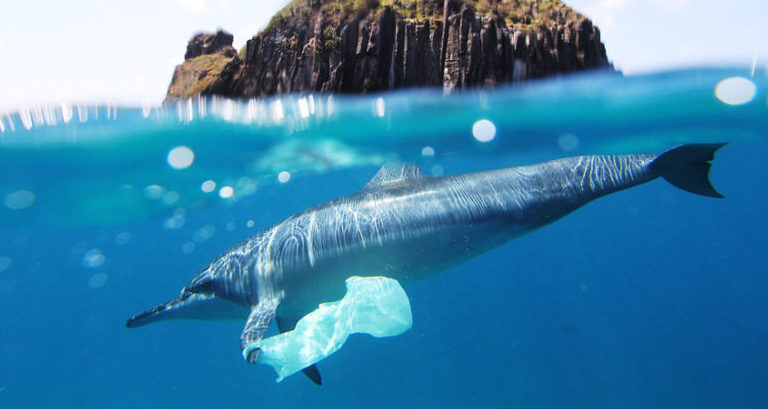A new study finds that regional plastic bag bans in the U.S. significantly reduce coastal plastic bag litter compared with areas without such policies. Single-use plastic bags are one of the most ubiquitous forms of plastic litter. They are rarely recycled and degrade quickly into microplastics that are often ingested by wildlife, leading to injury, stress and death. To tackle the problem, many municipalities have turned to regulation. As of 2023, roughly one in three U.S. residents lived in an area with some type of plastic bag policy: Ten states enacted laws to ban plastic bags or charge a fee to discourage their use, another two states enacted such policies in 2024. More than 90% of policies are at the local town level. Meanwhile, more than 100 countries have some type of ban or fee on thin plastic bags. Despite the widespread adoption of plastic bag policies, there have been limited data on their effectiveness, until now. To fill this gap, study authors Anna Papp, an incoming postdoc at MIT, U.S., and Kimberly Oremus, an associate professor at the University of Delaware’s School of Marine Science and Policy, turned to crowd-sourced beach cleanup data collected between 2016 and 2023 by the nonprofit advocacy group Ocean Conservancy. Through its app called Clean Swell, which records trash picked up by volunteers, the NGO has collected long-term, standardized data from more than 226,000 locations globally. “The volunteers, when they gather their litter, they count and categorize the items and enter that into the app,” Oremus…This article was originally published on Mongabay
Search
Recent Research
Want your Blog Article featured on our website?
Research
Featured News
Explaining Katsina’s Massive Leap to 2nd Position in the 2025 Climate Governance Ranking
In 2024, during the first edition of the Subnational Climate Governance Performance Rating and Ranking,
COP30: Firm to connect institutions with international climate finance opportunities
SISTME, a climate change and biodiversity conservation consulting firm based in Argentina, has offered to
From resistance to planetary governance, Indigenous women redefine global climate action
While world leaders negotiate behind closed doors in the Blue Zone of COP30, Indigenous Women
Sahara Group Foundation launches 16th Sahara Go Recycling Hub to boost environmental sustainability, economic empowerment
Sahara Group Foundation, the corporate social impact arm of Sahara Group, has commissioned its 16th
Climate finance is the lifeblood of climate action – Simon Stiell at COP30
Remarks delivered by UN Climate Change Executive Secretary, Simon Stiell, at the third High-Level Ministerial
UNDP, REA, GEF commission Plateau solar mini-grid to power agricultural value chains, empower rural communities
The United Nations Development Programme (UNDP), in partnership with the Rural Electrification Agency (REA) and
COP30: Africa urges world leaders to turn pledges into action
Africa has called on the world leaders to turn their pledges into action regarding the
Thousands join global marches calling on govts at COP30 to deliver climate justice
An estimated 30,000 people marched through the Brazilian city of Belém on Saturday, November 15,


